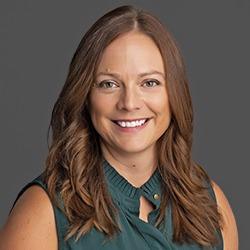While breathing does not require conscious thinking, ineffective lung function can make noticeably negative impacts on daily life. Breathing can be affected by a wide array of external and internal factors from pollution in the air to pneumonia. A pulmonologist can pinpoint the cause behind ineffective lung function and create a treatment plan to improve a patient’s breathing. Here are answers to your questions surrounding pulmonology and lung disease.
When should someone see a pulmonologist?
It is recommended to see a pulmonologist for lung diseases such as chronic obstructive pulmonary disease (COPD) and asthma that are not well controlled, with worsening symptoms or that have caused recurrent hospitalizations. Seeing a pulmonologist is needed for sleep apnea diagnosis or treatment plan. People with primary lung diseases such as lung cancer, interstitial lung disease, sarcoidosis, hypersensitivity pneumonitis, and pulmonary arterial hypertension should see a pulmonologist regardless of how well it is controlled.
What are the benefits of seeing a pulmonologist?
Pulmonologists offer advanced therapies for lung conditions that may not be available from your primary care provider.
What are common signs of chronic lung diseases?
Common signs of lung diseases are low oxygen levels, long term cough, dyspnea (shortness of breath) with exertion and wheezing.
Can minor lung diseases worsen if they are not treated or managed?
Minor lung diseases can worsen over time if they are not treated or managed.
What lung diseases require medical treatment or management?
All lung diseases require medical evaluation. Most do require some degree of long-term treatment or surveillance. Any lung disease or lung symptoms that are worsening over time (with or without treatment) should be seen by a lung specialist.
How can ineffective breathing influence one’s daily life?
Lung diseases can have significant impacts on patients’ lives through symptom related impacts such as shortness of breath with activities of daily living (ADLs): showering, eating, climbing stairs, dressing, grocery shopping, etc. Patients can require using long-term oxygen therapy which changes how they can travel, leave the house and have a dependence on a machine. Many patients with lung diseases worry about the stigma of wearing oxygen.
What lifestyle changes could help improve one’s lung function?
The two most common lifestyle changes to improve lung function are tobacco cessation and weight loss.
Dr. Megan Sisk is an experienced board-certified pulmonologist. She provides comprehensive care for a wide variety of lung diseases including, but not limited to, asthma, COPD, chronic cough, idiopathic pulmonary fibrosis, non-resolving pneumonia, and pulmonary hypertension. Dr. Sisk sees patients at the Great Falls Clinic Specialty Center at 3000 15th Avenue South, Great Falls. For more information or to schedule an appointment, please call (406) 454-2171, or visit her page here.

